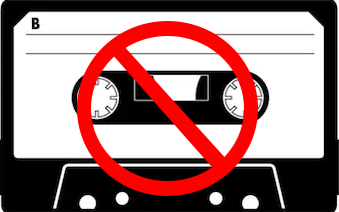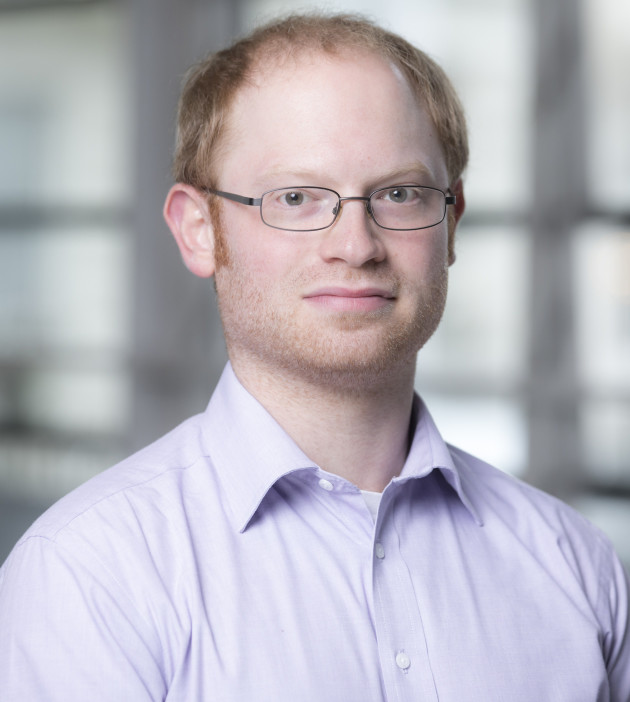At a glance
- Taught live online
- Mondays 18:00 - 20:00
- 10 weeks | October - December
- Starts 7 October 2024
- Fees from £144
- Tutor: Dr Bruno Bower
Enrol-by Date
- Late enrolment may be possible
 For anyone interested in classical music, opera, Verdi and Wagner
For anyone interested in classical music, opera, Verdi and Wagner
Verdi and Wagner are giants in the world of opera. Their output was (one way or another) vast and deeply influential, and it is essential listening for anyone who wants to know more about the genre. Yet it might also seem odd to place them side-by-side: the lyrical Italian tunesmith behind Il Trovatore and La Traviata might at first glance seem to have nothing at all in common with the densely philosophical Germanic creator of such monoliths as Der Ring des Nibelungen and Parsifal. However, their sources of influence, the times they lived through, and their deep concern over issues such as text, drama, and national identity overlap more than we might expect.
This course explores the lives of these two composers in parallel, moving from their inspirations in the early nineteenth century all the way through to the heights of their fame and to their late-nineteenth and early-twentieth-century successors.
Newcomers will get to know the full range of work from both, while those who already know some of these operas will have plenty to discover about their social and historical context, and may well be surprised at how much these two composers have in common in spite of their different musical styles.
This 10-week course is suitable for people with or without previous knowledge of opera, though it makes a particularly good next step for those who have already taken the Discovering Opera course.
All classes will be supported by a PowerPoint presentation and plenty of audio and video examples of the operas, and there will opportunities for discussion around the material too, with all opinions welcome.
Class Recordings

These classes are not recorded
Attendance Certificate

Successful completion of this course leads to the award of an Imperial College attendance certificate
Terms and conditions apply to all enrolments to this course. Please read them before enrolment
Course Information
- Course Programme
- Your Tutor
- What did last year's students think of the course?
- Course Fees and Rate Categories
- Term Dates 2024-25
- Enrolment Process
- Any Questions?
Course Programme (may be subject to some modification)
1. Predecessors
The first class will look at the pre-existing systems of opera production in which Verdi and Wagner trained, and the main composers who provided foundations for their first works. Each had their own obvious local models, with Verdi drawing on Rossini and Bellini and Wagner on Weber. However the French form of Grand Opera also served as major reference point for both, with the top exponent Meyerbeer himself playing a key role in Wagner’s development in particular. Examples drawn from Rienzi and Les Vêpres Siciliennes will show the common links here.
2. Early work
Here we will explore the main operas with which Verdi and Wagner established their early personal styles: Nabucco and Tannhäuser. The receptions diverge enormously: the former launched Verdi to international acclaim while the latter brought Wagner middling recognition at best. However, there were already signs of affinity between the two, not least in their willingness to liberally blend history and fiction to create something of weighty significance.
3. National concerns
Nationalist revolutions spread across Europe during the middle of the century, especially around 1848 and 1849, and were brutally crushed by the authorities. Both composers were deeply affected by the idea of national unification, which left undeniable traces on works like La Battaglia di Legnano and Lohengrin (to say nothing of Wagner’s output prior to this). The initial failure of the revolutionary efforts impacted on their work as well, with Verdi reluctantly turning to less inflammatory topics in Luisa Miller and Wagner forced into ‘exile’ and focusing his attentions in more literary and theoretical directions.
4. Text and Music
Wagner used the period of exile to start formally setting out his ambitious ideas of a unified work of art, Gesamtkunstwerk. His theoretical ideas about how to create a more continuous form of musical drama in particular, unbroken by the traditional sections of arias and recitatives, was first put into practice in Das Rheingold, and became a primary defining feature of his mature work. But, as this class will show, Verdi was independently striving for something similar, with Rigoletto (premiering in the same year as Wagner’s treatise Opera and Drama) starting to break down the exact same boundaries.
5. Drama
The vast majority of the output of both composers concerns the weightier kind of plot, featuring doomed love, curses, death, exile, and so on. This class will explore the shared themes in the two composers’ dramatic narratives, with particular focus on the familial element: so many of these operas revolve around the dynamics of parents with their children, and failing or inadequate fathers are a particular point of common ground, as we will see from both Die Walküre and Don Carlos.
6. Comedy
This class will focus on the limited attempts at comedy from the output of both composers. Verdi did not recover from the failure of Un Giorno di Regno until the end of his life with his turn to Falstaff, and Wagner underwent a similar trajectory from Das Liebesverbot to Die Meistersinger von Nürnberg. We’ll discuss what made both composers so averse to comedic approaches, and how their respective works handle the issue nonetheless.
7. Fame
The early 1870s saw both Wagner and Verdi at the pinnacles of success: the former now had the financial backing to finish his Ring cycle and create a purpose-built theatre for it, while the premiere of the latter’s Aida in Cairo shows the international reach of his reputation. Here we will discuss the fact that such heights of fame for both composers came with the unification of their respective nations, and we will explore the ways they both began rewriting their back histories to fit with the expectations of national icons.
8. Late work
Both composers experienced drops in productivity during the later 1870s as they approached old age. Wagner continued to write both prose and music, but Verdi stopped new work altogether and had to be persuaded (after extensive scheming from his publisher) to begin again. We will discuss the fact that, in spite of some major divergences in their lives at this point, their respective major late works (Otello and Parsifal) actually begin to show even more convergence in musical style than their previous operas.
9. Successors
The final two classes will focus on the afterlives of both composers, starting with the people who took up the challenge of following in their footsteps. We will discuss what Giacomo Puccini and Richard Strauss (among others) took from their respective forebears, and we will see how even the next generation already had more in common in terms of style and approach than we would normally expect from their different traditions.
10. Legacy
Here we will assess the afterlives of the two composers, in terms of their own reputations among audiences, critics, and musicologists, by turning to earlier works that really define the idea of their opposite styles: La Traviata, and Tristan und Isolde. Each has had a very different critical afterlife, and we will see how these different trajectories have obscured all the similarities that the course has outlined.
 Dr Bruno Bower is a lively and enthusiastic tutor whose love of music is infectious. He is a musicologist, performer, composer, and music editor, as well as a highly experienced teacher. He has taught at Cambridge University, University of Surrey, Brunel University, and the Royal College of Music, and his innovative teaching methods have been recognised by Fellowship of the Higher Education Academy. Alongside his courses at Imperial, he currently teaches at the Guildhall School of Music and Drama.
Dr Bruno Bower is a lively and enthusiastic tutor whose love of music is infectious. He is a musicologist, performer, composer, and music editor, as well as a highly experienced teacher. He has taught at Cambridge University, University of Surrey, Brunel University, and the Royal College of Music, and his innovative teaching methods have been recognised by Fellowship of the Higher Education Academy. Alongside his courses at Imperial, he currently teaches at the Guildhall School of Music and Drama.
He has written and presented on subjects as diverse as Gilbert and Sullivan, John Cage, and Victorian polymaths, and he is the General Editor for critical editions of music by Peter Gellhorn and Norman O’Neill, as well as editorial consultant on the AHRC-funded ‘Music, Migration and Mobility’ project at the RCM. He is also the principal oboist of West London Sinfonia and the cor anglais player for Chelsea Opera Group.
We asked last year's students to give anonymous feedback and this is what they told us:*
- "Well thought-out and clear."
- "Very very good. Full of infectious enthusiasm!
- "I have recommended Bruno's courses to anyone I know interested in Classical Music."

And overall all adult education students in 2023-2024 rated our courses as excellent with a score of 4.7 out of 5.
Thank you to everyone who completed the annual survey.
| Weeks | Standard Rate | Internal Rate | Associate Rate | ||
|---|---|---|---|---|---|
| 10 | £268 |
£160 | £211 | ||
| All fee rates quoted are for the whole course. Part-payments are not possible. | |||||
Rate Categories and Discounts
Standard Rate
- Available to all except those who fall under the Internal Rate or Associate Rate category.
Internal Rate
- Current Imperial College students and staff (incl. Imperial NHS Trust, Imperial Innovations, ancillary & service staff employed on long-term contracts at Imperial College by third-party contractors)
- People enrolling under our Friends & Family scheme
- Alumni of Imperial College and predecessor colleges and institutes, including City & Guilds College Association members
- Students, staff and alumni of the Royal College of Art, Royal College of Music and City, UAL and the City and Guilds of London Art School
- Students, staff and Governors of Woodhouse College and the IC Mathematics School
Associate Rate
- Austrian Cultural Forum staff
- Co-operative College members
- Francis Crick Institute staff, researchers and students
- Friends and Patrons of the English Chamber Orchestra
- Friends of Hyde Park and Kensington Gardens
- Friends of Leighton House/ Sambourne House
- Friends of the Royal College of Music
- Harrods staff
- Historic Royal Palaces staff
- Lycee Charles de Gaulle staff
- Members of the Friends of Imperial College
- Members of the Kennel Club
- Members of the London Zoological Society
- Members of the South London Botanical Institute (SLBI)
- Members of the UK Council for Psychotherapy (UKCP)
- National Health Service (NHS) employees
- Natural History Museum staff
- Residents of postcodes SW3, SW5, SW7, SW10 and W8
- Royal Borough of Kensington and Chelsea Council staff
- Royal Geographical Society staff
- Science Museum staff
- Staff of Exhibition Road Cultural Group (Discover South Kensington) organisations
- Students (non-Imperial College)
- Teachers and other staff of UK schools
- The American Institute for Foreign Study
- Tutors and other staff of institution members of the Association of Colleges
- Tutors and other staff of other universities and higher education institutions
- Victoria and Albert Museum staff
Late enrolment
It is possible to enrol on many of our adult education courses after the course has already started. For non-language courses this is subject entirely to agreement by the tutor. For language courses it is subject to agreement by the language coordinator conducting level assessment. If you want to join a course late do bear in mind there might be work you will need to catch up on, particularly in language courses.
Friends and Family Scheme
This course is eligible for allowing Imperial College students and staff to share their discount with their friends and family.
| Weeks | Autumn term | Spring term | Summer term | ||
|---|---|---|---|---|---|
| 10 | Week starting 7 October to week ending 14 December 2024* | n/a | n/a | ||
| *This is a 1-term course | |||||
Enrolment via the blue booking link is open. Early-bird discounts are available until the end of 30 September 2024
Enrolment and payment run through the Imperial College eStore. When enrolling:
- Do check on the drop down menu above called "Course Fees and Rate Categories" to see if you are eligible for a discounted rate and also do make sure you select that rate when enrolling on the eStore
- If you are a first-time eStore user you will need to create an account before enrolling. You can do this by entering an email address and password. This account can then be used for any future enrolments via the eStore.
When you have enrolled you will be sent the following email notifications:
| What is sent | When is it sent | What does it contain | |
|---|---|---|---|
| 1. Payment confirmation | Is sent straight away following submission of your online application |
|
|
| 2. Enrolment confirmation | Is usually sent within 10 working days. Please treat your payment confirmation as confirmation that your applicant details and payment have been received |
|
|
| 3. Programme information | Is usually sent on Friday late afternoon the week before term starts |
|
|
|
|||
If you have any questions about the academic content or teaching of this course please contact the Course Tutor, Dr Bruno Bower, b.bower@imperial.ac.uk
If you have any questions about your enrolment or payment processes please contact the Programme Administrator, Christian Jacobi, eveningclass@imperial.ac.uk
Useful Links
Courses Now AvailableStudent HandbookFrequently Asked QuestionsJoin Our Mailing ListSci Comm Students' DiscountsStaff Information (Staff Use)Contact us
Imperial after:hours Adult Education
Centre for Languages, Culture and Communication
Level 3 - Sherfield Building
Imperial College London
London SW7 2AZ
eveningclass@imperial.ac.uk
Tel. +44 20 7594 8756
